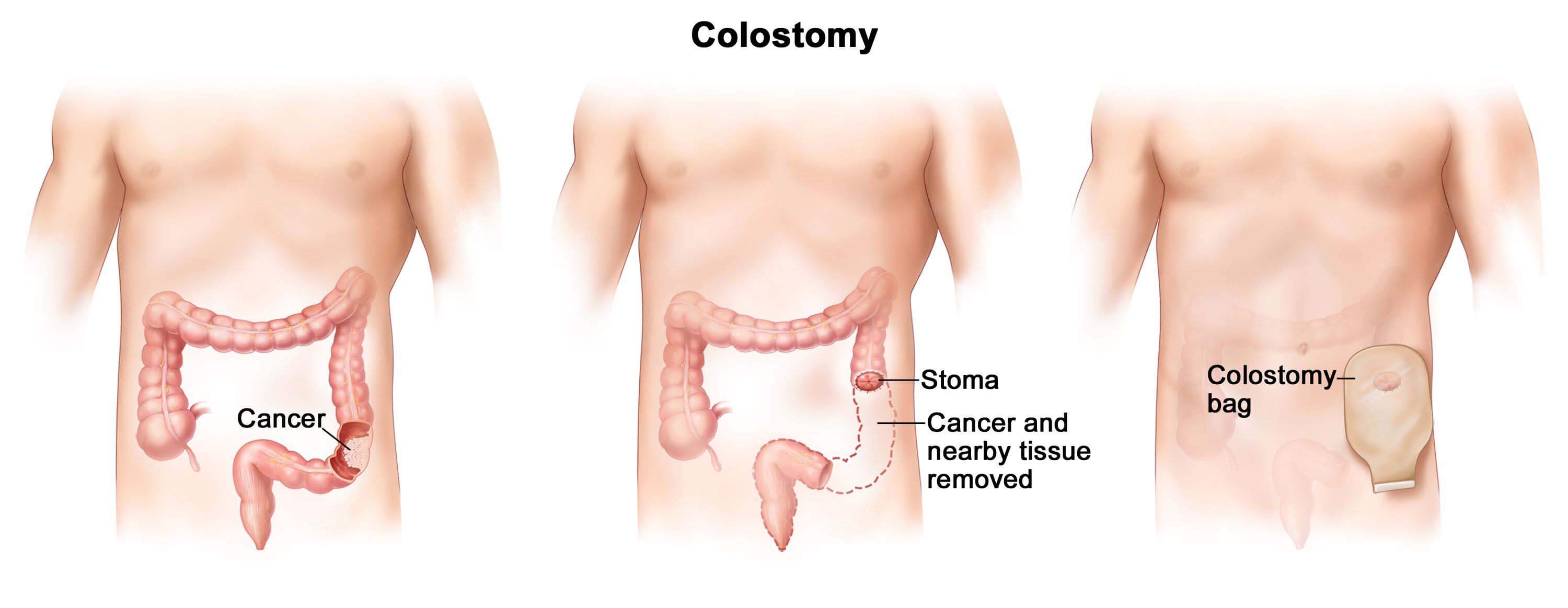
Surgery is the removal of the tumor and some surrounding healthy tissue during an operation. It is often called surgical resection. This is the most common treatment for colorectal cancer. Part of the healthy colon or rectum and nearby lymph nodes will also be removed.
While both general surgeons and specialists may perform colorectal surgery, many people talk with specialists who have additional training and experience in colorectal surgery. A surgical oncologist is a doctor who specializes in treating cancer using surgery. A colorectal surgeon is a doctor who has received additional training to treat diseases of the colon, rectum, and anus. Colorectal surgeons used to be called proctologists.
In addition to surgical resection, surgical options for colorectal cancer include:
- Laparoscopic surgery. Some patients may be able to have laparoscopic colorectal cancer surgery. With this technique, several viewing scopes are passed into the abdomen while a patient is under anesthesia. Anesthesia is medicine that blocks the awareness of pain. The incisions are smaller and the recovery time is often shorter than with standard colon surgery. Laparoscopic surgery is as effective as conventional colon surgery in removing the cancer. Surgeons who perform laparoscopic surgery have been specially trained in that technique.
- Colostomy for rectal cancer. Less often, a person with rectal cancer may need to have a colostomy. This is a surgical opening, or stoma, through which the colon is connected to the abdominal surface to provide a pathway for waste to exit the body. This waste is collected in a pouch worn by the patient. Sometimes, the colostomy is only temporary to allow the rectum to heal, but it may be permanent. With modern surgical techniques and the use of radiation therapy and chemotherapy before surgery when needed, most people who receive treatment for rectal cancer do not need a permanent colostomy. Learn more about colostomies.
- Radiofrequency ablation (RFA) or cryoablation. Some patients may have surgery on the liver or lungs to remove tumors that have spread to those organs. Optional treatments include using energy in the form of radiofrequency waves to heat the tumors, called RFA, or to freeze the tumor, called cryoablation. Not all liver or lung tumors can be treated with these approaches. RFA can be done through the skin or during surgery. While this can help avoid removing parts of the liver and lung tissue that might be removed in a regular surgery, there is also a chance that parts of tumor will be left behind.